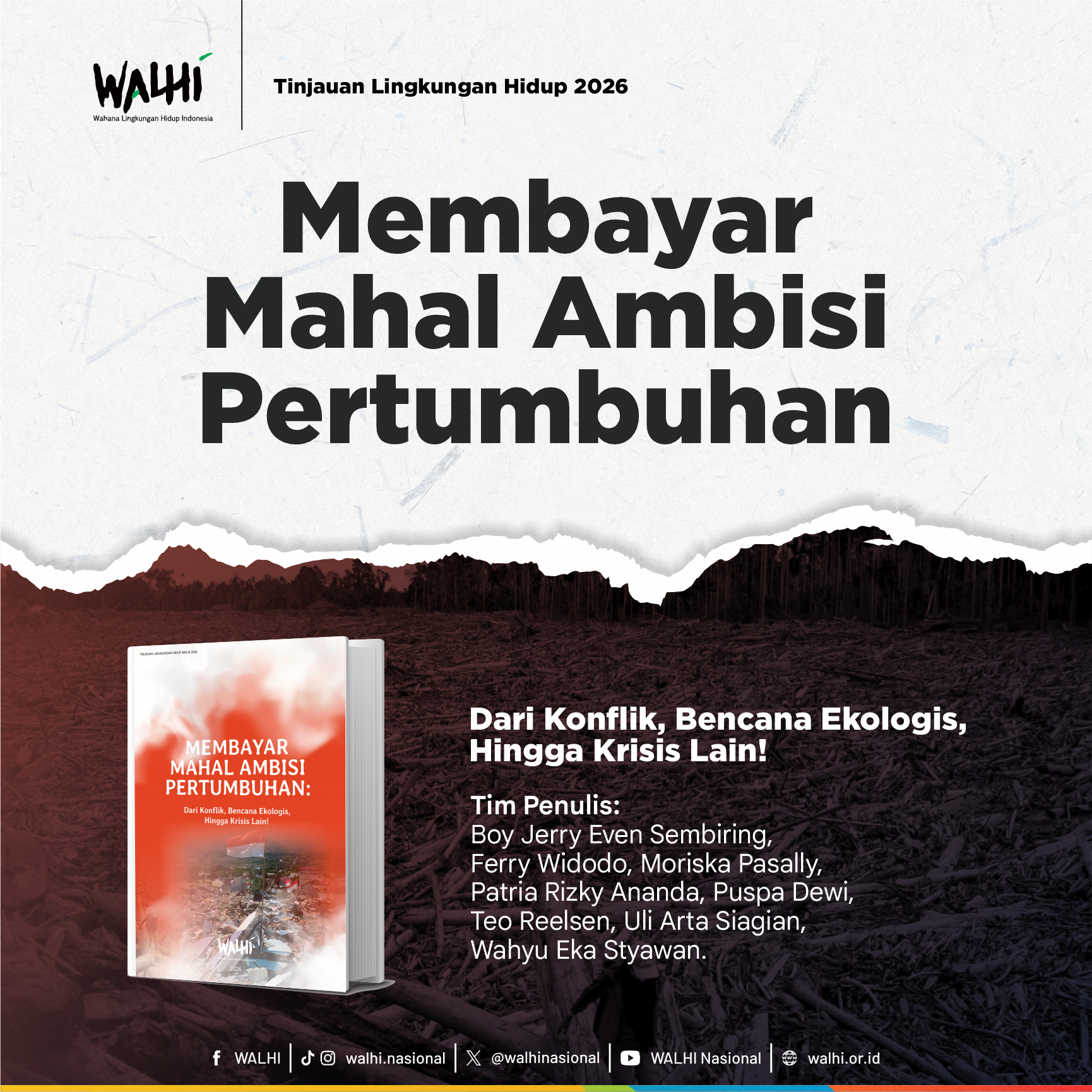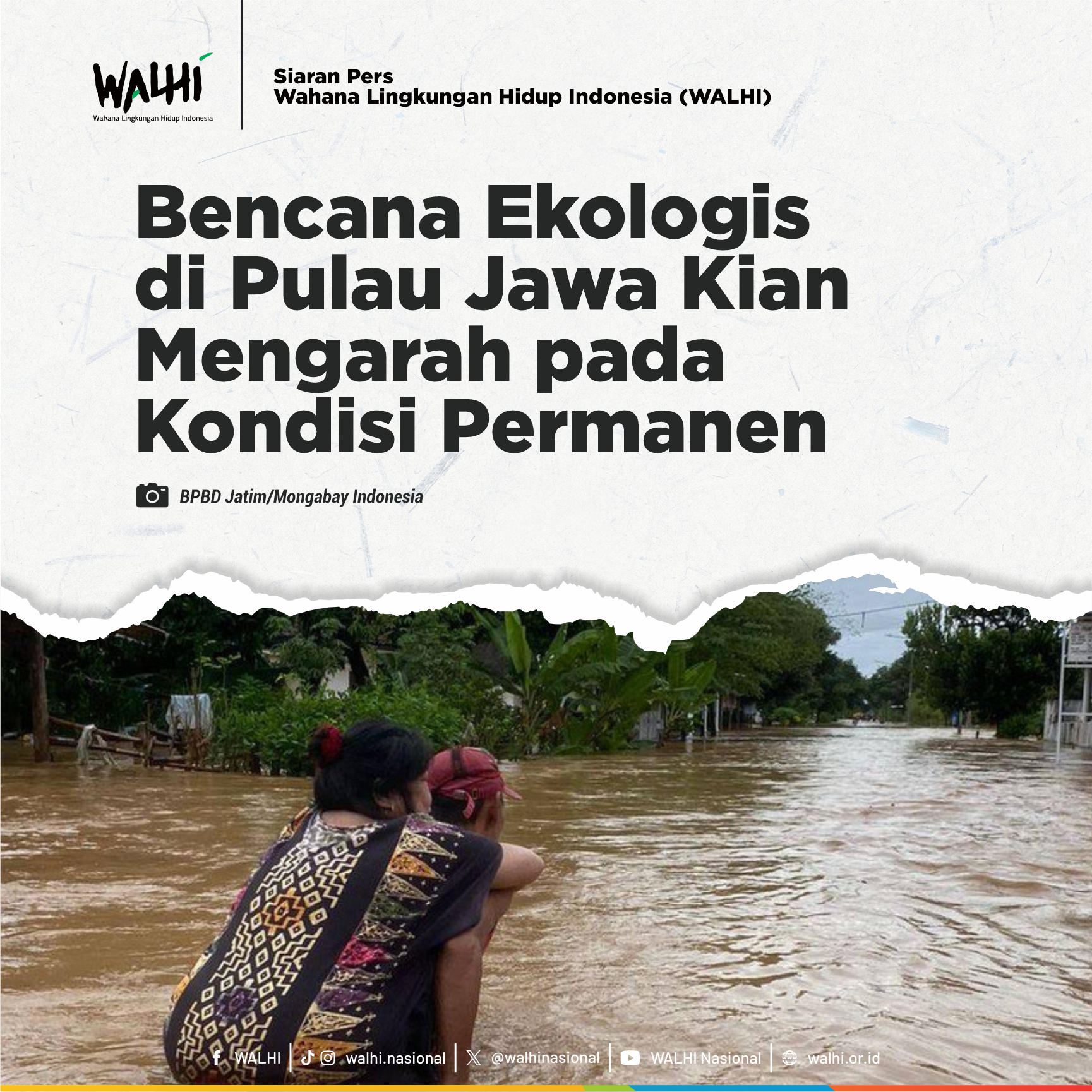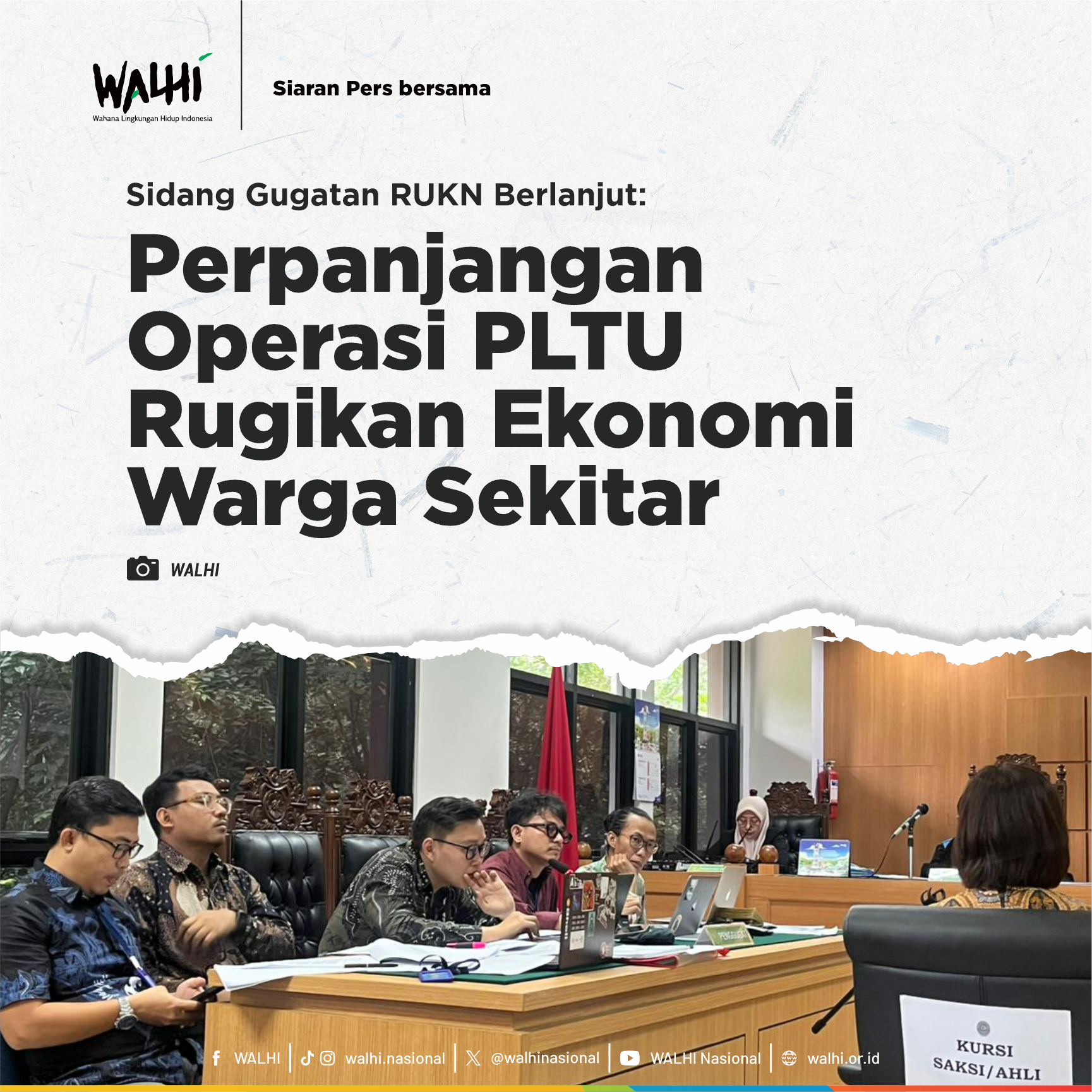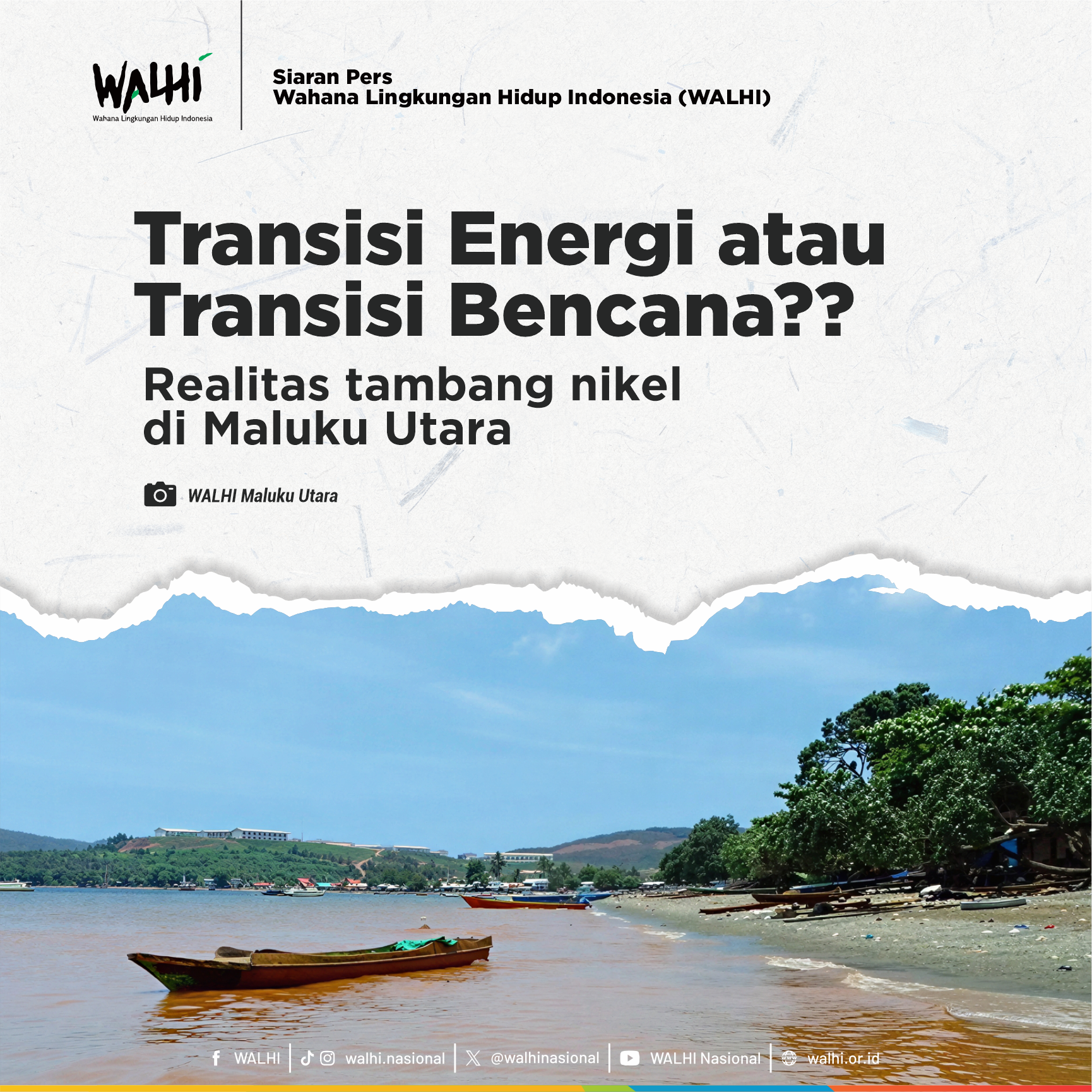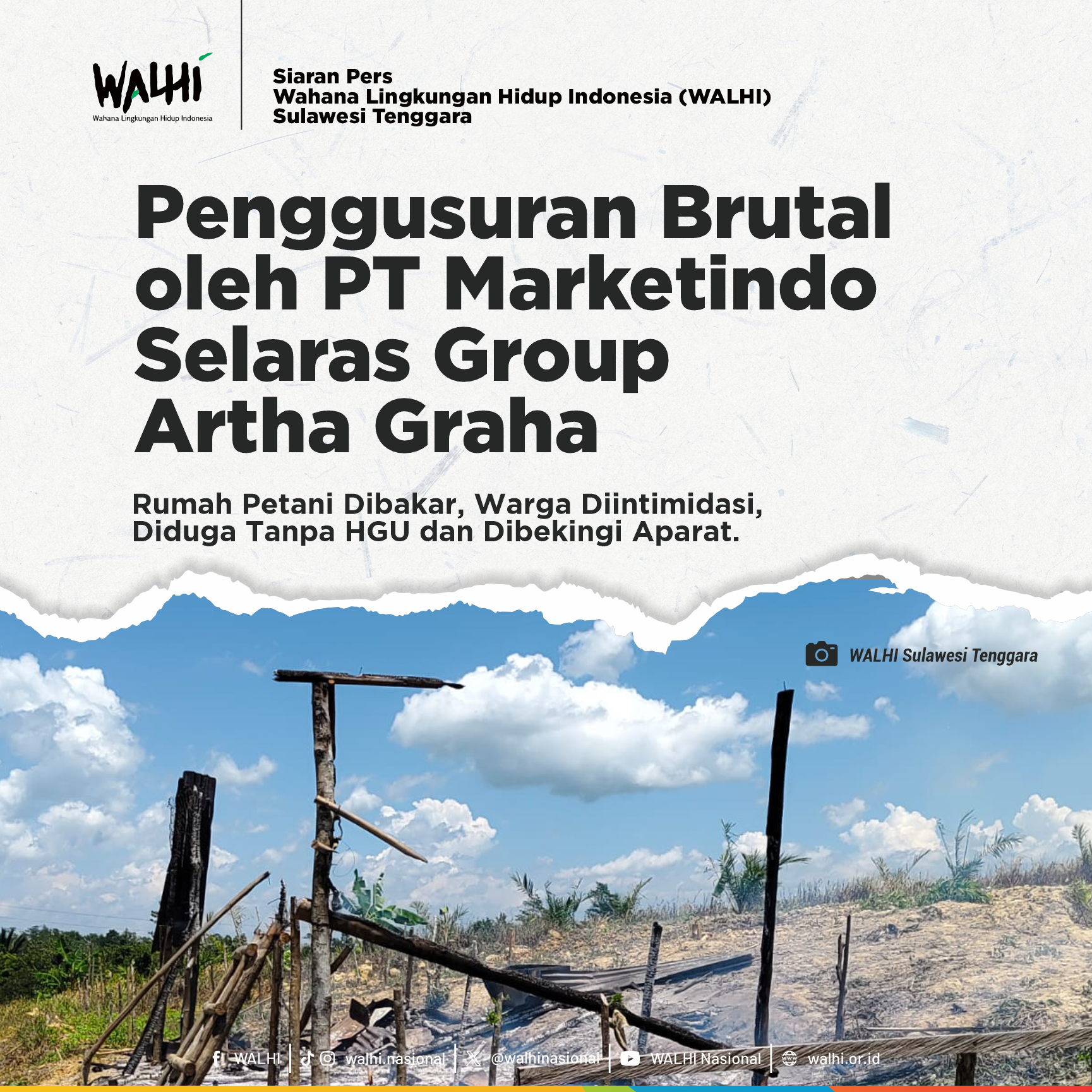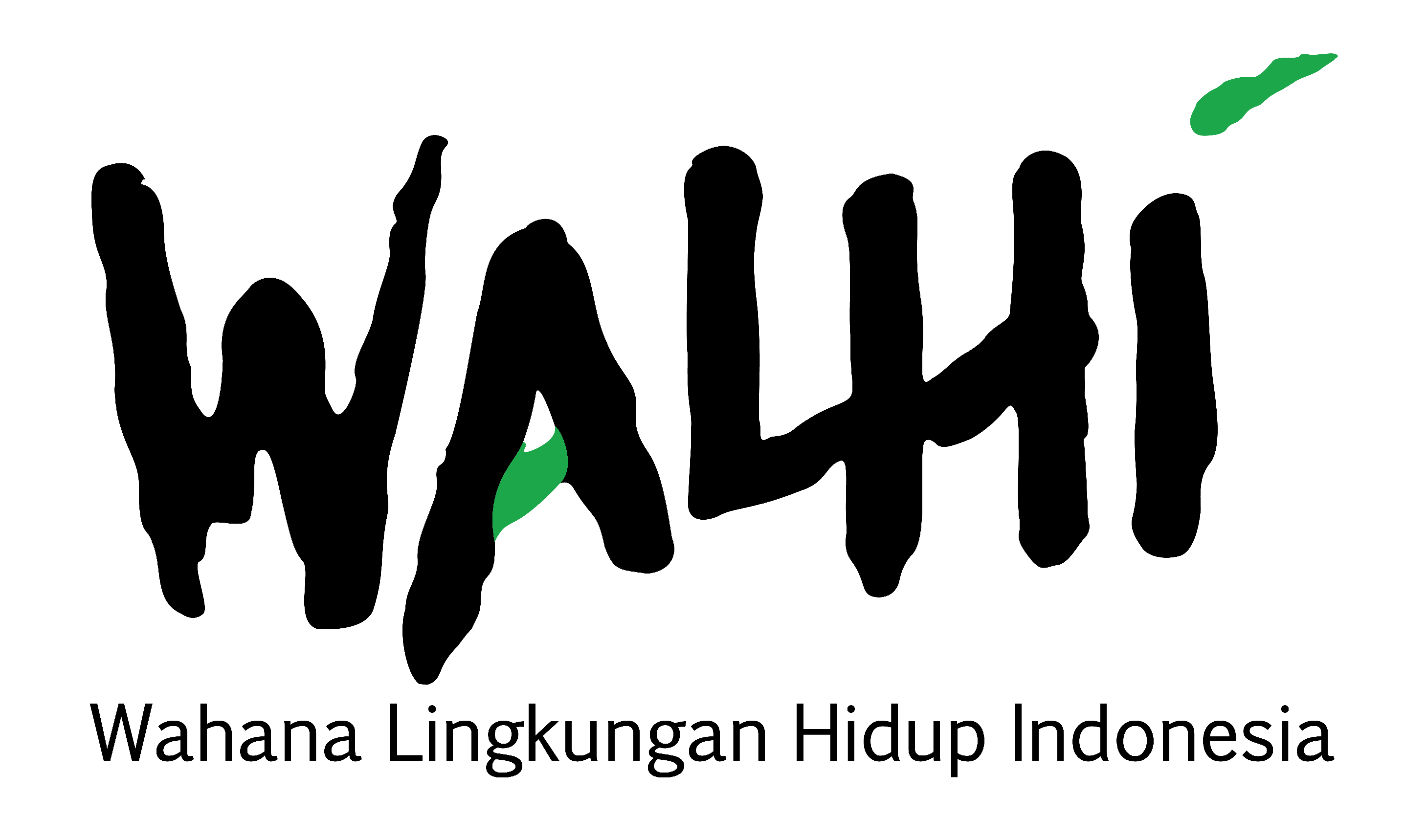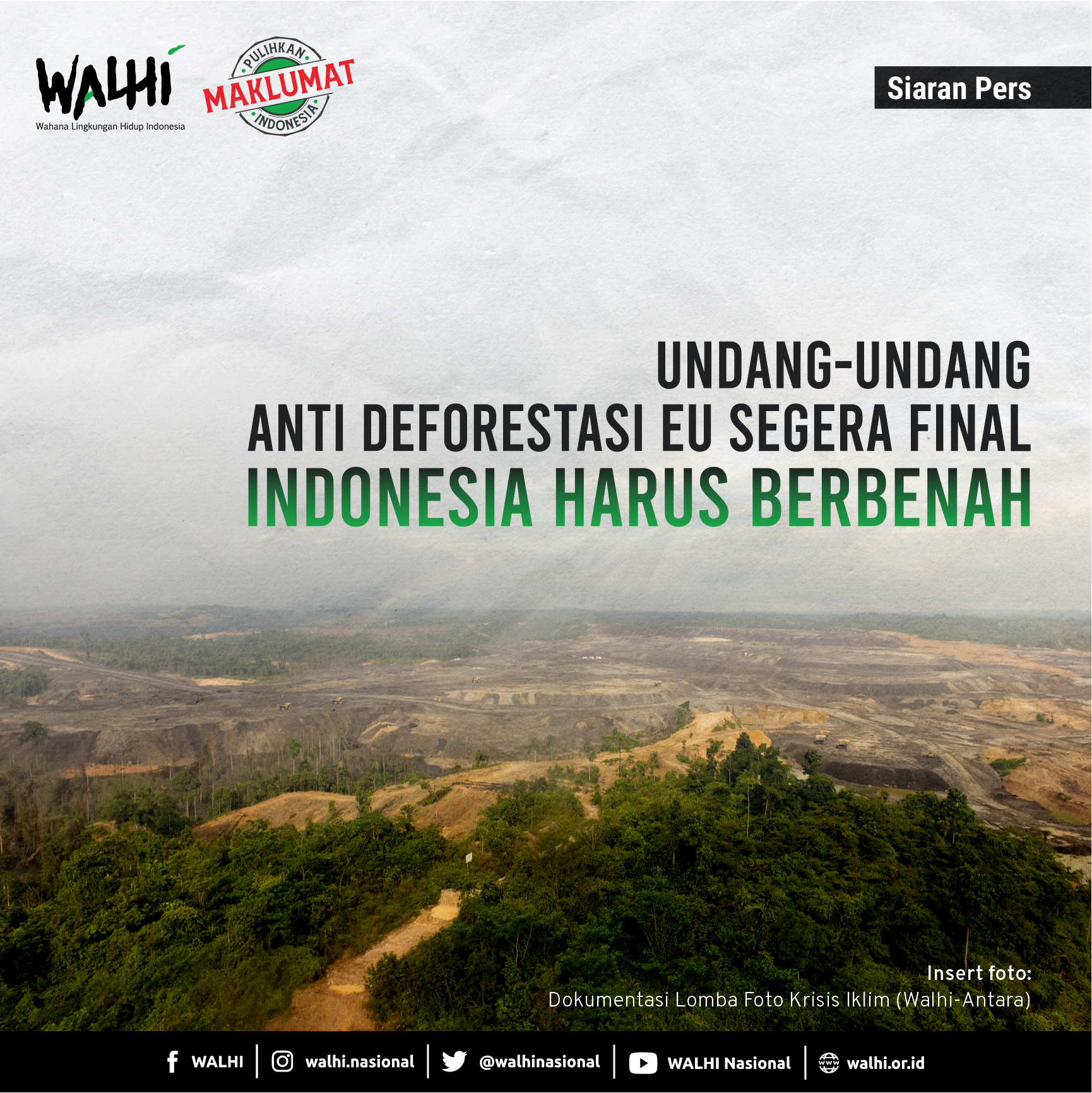
Bilingual Version
Rilis Media
Wahana Lingkungan Hidup Indonesia (WALHI)
Undang-undang Anti Deforestasi EU Segera Final, Indonesia Harus Berbenah
Anggota Parlemen Eropa akhirnya sepakat memasukkan tata cara untuk memastikan perusahaan menghormati norma dan standar internasional mengenai Hak Asasi Manusia dalam undang-undang anti deforestasi yang saat ini mereka susun. Hak masyarakat adat dan komunitas lokal atas persetujuan bebas, didahulukan, dan diinformasikan (Free, Prior and Informed Concent/FPIC) menjadi prasyarat untuk mengimpor produk ke UE. Prasyarat uji tuntas mengenai klaim atas tanah dan keberadaan masyarakat adat dan komunitas lokal menjadi sangat kuat.
“Keputusan parlemen Eropa untuk memasukan prasyarat Hak Asasi Manusia dalam peraturan anti deforestasi ini merupakan langkah yang tepat. Sebab, anti deforestasi dan perlindungan terhadap HAM adalah sebuah keniscayaan. Agar undang-undang ini nantinya dapat menurunkan laju deforestasi di Indonesia, maka pemerintah Indonesia harus segera berbenah” kata Uli Arta Siagian, Manager Kampanye Hutan dan Kebun Eksekutif Nasional WALHI.
Uli menjelaskan setidaknya ada beberapa tindakan korektif yang harus dilakukan pemerintah Indonesia agar bisa tetap melakukan ekspor ke UE, terkhususnya untuk komoditas sawit dan kayu.
Pertama, pemerintah Indonesia harus segera mengoreksi tata kelola sawit dan kayu yang sengkarut, mulai dari pemberian izin. Evaluasi menyeluruh izin-izin perkebunan sawit, logging dan kebun kayu (HTI) milik korporasi. Hal ini menjadi sangat penting sebab, sawit illegal dalam Kawasan hutan yang dikuasai oleh korporasi sangat luas. Kementerian Lingkungan Hidup dan Kehutanan (KLHK) mencatat seluas 3,3 juta hektar sawit dalam hutan. Maka tindakan pemberian sanksi terhadap perusahaan tersebut dengan mencabut izinnya penting untuk dilakukan. Pemenuhan bahan baku industri pulp and paper hingga saat ini 45% nya masih dari hutan alam. Kayu logging yang diproduksi juga masih banyak berasal dari luar konsesi izin perusahaan.
Untuk menjamin prasyarat perlindungan Hak Asasi Manusia yaitu, klaim atas tanah dan keberadaan masyarakat sebagai prasyarat uji tuntas, pemerintah harus segera memperluas pengakuan dan perlidungan Wilayah Kelola Rakyat. Terhadap Wilayah Kelola Rakyat yang berada di Kawasan hutan, pengakuan dapat dilakukan dengan kebijakan perhutanan sosial, hutan adat dan Tanah Objek Reforma Agraria (TORA) dalam Kawasan hutan.
Terhadap Wilayah Kelola Rakyat yang berkonflik dengan korporasi, maka diperlukan distribusi lahan dengan skema enclave, dan bahkan lebih jauh mencabut izin perusahaan.
Kedua, diperlukan penguatan implementasi dari kebijakan moratorium izin di kawasan hutan. Bahkan pemerintah Indonesia sudah seharusnya mengambil langkah untuk berhenti menerbitkan izin untuk perkebunan sawit. Jika penerbitan izin perkebunan sawit terus dilakukan, maka deforestasi akan semakin massif. Ketiga adalah penegakan hukum.
Hal lainnya yang diputuskan parlemen UE dan harus diperhatikan oleh pemerintah Indonesia adalah sertifikasi. Parlemen Eropa juga menyatakan bahwa sertifikasi tidak dapat digunakan oleh perusahaan sebagai pengganti bahwa mereka telah melakukan uji tuntas. Selama ini banyak sekali kasus yang ditemui, bahwa perusahaan pemegang sertifikat seperti SVLK dan ISPO untuk Indonesia masih melakukan deforestasi dan pelanggaran Hak Asasi Manusia. Maka pemberian, monitoring, evaluasi terhadap korporasi pemegang sertifikat SVLK dan ISPO harus dilakukan dengan serius, ketat dan inklusif, agar semua pihak dapat memantau.
Untuk menjamin implementasi undang-undang anti-deforestasi ini bermanfaat bagi perlindungan hutan Indonesia serta masyarakat (petani swadaya, masyarakat adat, komunitas lokal), parlemen UE harus memperkuat kerja sama dengan pemerintah Indonesia dan mendorong pemerintah Indonesia untuk memperbaiki tata kelola, kebijakan perlindungan hutan dan hak asasi manusia serta memperluas pengakuan hak rakyat Indonesia atas wilayah kelola mereka.
Undang-undang anti deforestasi ini tentunya tidak diharapkan memberikan dampak buruk bagi petani swadaya di Indonesia. Maka untuk menjamin petani Indonesia dapat memenuhi prasyarat uji tuntas, maka parlemen UE harus memberikan perhatian khusus dan membangun kerja sama dengan petani.
Catatan, pemungutan suara di pleno parlemen UE merupakan langkah terakhir sebelum negosiasi antara Komisi Eropa, Dewan dan Parlemen Eropa. Proses selanjutnya akan menghasilkan dokumen Peraturan UE tentang komoditas bebas deforestasi versi final.
Referensi :
- https://www.fern.org/publications-insight/european-parliament-champions-indigenous-peoples-rights-in-landmark-deforestation-law-2558/?utm_source=Fern+Global+List&utm_campaign=88a62ba8ee-EMAIL_CAMPAIGN_4_10_2019_9_12_COPY_01&utm_medium=email&utm_term=0_a3733965c2-88a62ba8ee-380390729
- https://www.walhi.or.id/urgent-need-for-fair-policies-and-protection-of-the-environment-and-human-rights
Narahubung :
Uli Arta Siagian, Manager Kampanye Hutan dan Kebun (0821-8261-9212) Email : [email protected]
----- ----- -----
Media Release
Wahana Lingkungan Hidup Indonesia (WALHI)
EU Anti-Deforestation Bill Will Be Finalized Soon, Indonesia Should Make an Improvement
Members of the European Parliament have finally agreed to include procedures to ensure companies respect the international norms and standards on Human Rights in the anti-deforestation bill they are currently drafting. The right of indigenous peoples and local communities to free, prior, and informed consent (FPIC) is a prerequisite for importing products into the EU. The prerequisites for due diligence on land claims and the existence of indigenous peoples and local communities are becoming strong.
“The European Parliament's decision to include human rights prerequisites in this anti-deforestation bill is a right action. Since anti-deforestation and protection of human rights is necessary. In order for this bill to be effective in reducing the rate of deforestation in Indonesia, the Indonesian government must immediately make an improvement,” said Uli Arta Siagian, campaigner for forest and farm of the Executive National of WALHI.
Uli explained that at least there are some corrective actions that must be implemented by the Indonesian government in order to continue exporting to the EU, especially for palm oil and wood commodities.
Firstly, the Indonesian government must immediately correct the chaotic governance of oil palm and timber, starting from the issuance of permits. A comprehensive permit evaluation of palm oil, logging, and timber plantation. It is very important because illegal palm oil in forest areas controlled by corporations is very large. The Ministry of Environment and Forestry recorded an area of 3.3 million hectares of oil palm in the forest. So it is important to give sanctions against the companies by revoking their license. Until now, 45% of the raw materials for the pulp and paper industry are still coming from natural forests. Most of the logging wood produced also comes from outside the company's concessions.
In order to guarantee the prerequisites for the protection of human rights, namely, land claims and the existence of the community as prerequisites for due diligence, the government must immediately expand the recognition and protection of Community-based Management Areas. For Community-based Management Areas which are located in forest areas, the recognition can be carried out with regulations on social forestry, customary forests and Land for Agrarian Reform Object (TORA) in forest areas.
For Community-based Management Areas that are in conflict with corporations, it is necessary to distribute the land using an enclave scheme, and even revoke the company's permit.
Secondly, it is necessary to strengthen the implementation of the permit moratorium policy inside forest areas. The Indonesian government also should take actions to stop issuing permits for oil palm plantations. If the issuance of oil palm plantation permits continues, then deforestation will be even more massive. Thirdly, is law enforcement.
Another thing that has been decided by the EU parliament which should be paid attention to by the Indonesian government is certification. The European Parliament also states that certification cannot be used by companies as a substitute for their due diligence. We have seen cases where the companies holding certificates such as SVLK and ISPO for Indonesia are still making deforestation and human rights violations. Thus, the granting, monitoring, evaluation of corporations holding SVLK and ISPO certificates must be carried out seriously, strictly, and inclusively, so that all parties could monitor them.
To ensure that the implementation of this anti-deforestation bill is beneficial for the protection of Indonesia's forests and communities (independent farmers, indigenous peoples, local communities), the EU parliament should strengthen the cooperation with the Indonesian government and encourage them to improve the governance, forest protection and human rights policies, and also broaden the recognition of the rights of the Indonesian people over their managed territories.
This anti-deforestation law should not cause a negative impact on independent smallholders in Indonesia. In order to ensure that Indonesian farmers can meet the prerequisites for due diligence, the EU parliament must pay special attention and build cooperation with the farmers.
It has to be noted that the voting in the plenary session of the EU parliament is the last step before negotiations between the European Commission, the Council, and the European Parliament. The next process will produce the final version of the EU Regulation document on deforestation-free commodities.
References :
- https://www.fern.org/publications-insight/european-parliament-champions-indigenous-peoples-rights-in-landmark-deforestation-law-2558/?utm_source=Fern+Global+List&utm_campaign=88a62ba8ee-EMAIL_CAMPAIGN_4_10_2019_9_12_COPY_01&utm_medium=email&utm_term=0_a3733965c2-88a62ba8ee-380390729
- https://www.walhi.or.id/urgent-need-for-fair-policies-and-protection-of-the-environment-and-human-rights
Contact person: Uli Arta Siagian, Manager Kampanye Hutan dan Kebun (0821-8261-9212) Email: [email protected]

